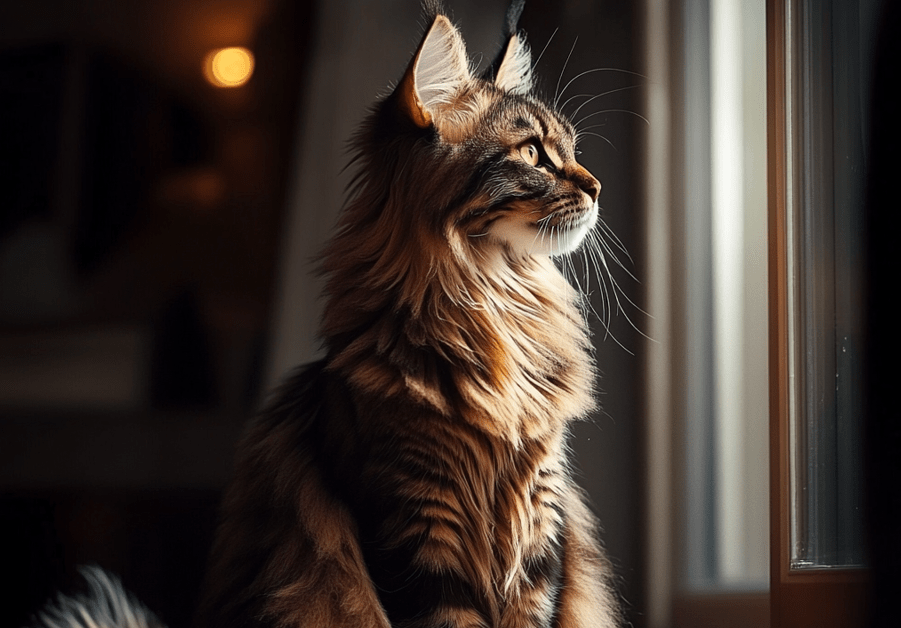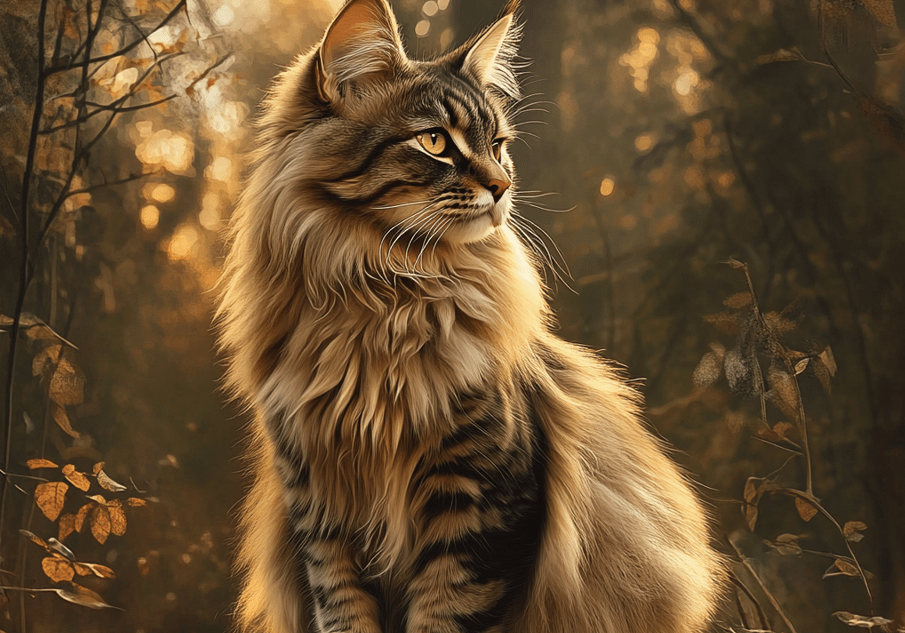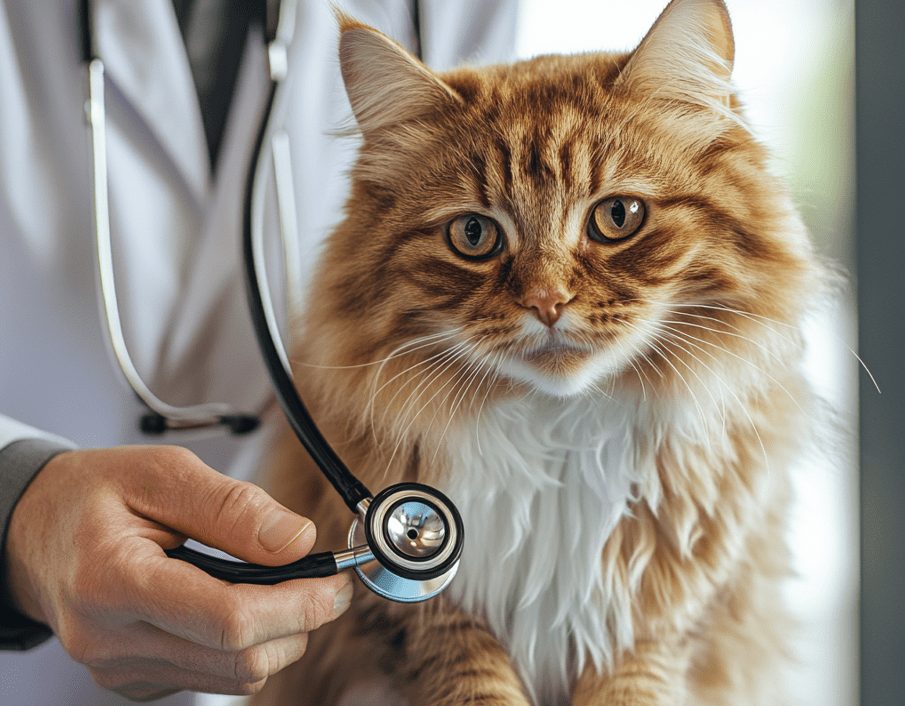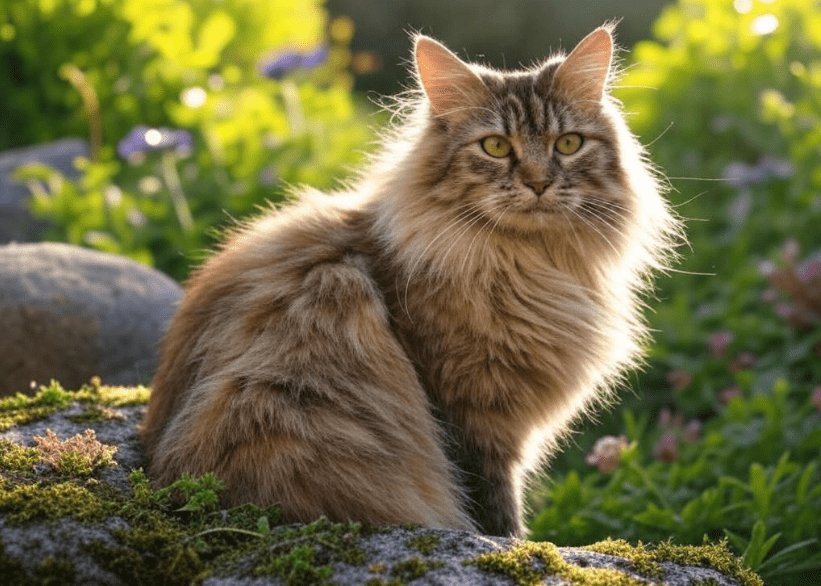
Maine Coons, with their majestic size and gentle personalities, require specialized care to thrive, making it essential to choose a vet for your Maine Coon who understands their unique needs. As one of the largest domestic cat breeds, Maine Coons have specific health concerns, such as hypertrophic cardiomyopathy (HCM) and hip dysplasia, that demand a knowledgeable veterinarian. In this comprehensive guide, we’ll walk you through the steps to select the right vet, what to look for, and how to ensure your Maine Coon receives top-notch care for a long, healthy life.
Why Choosing the Right Vet Matters for Your Maine Coon
Maine Coons are beloved for their dog-like loyalty, playful energy, and lush coats, but their large size and genetic predispositions require tailored veterinary care. A vet who understands the breed can:
Prevent and Detect Health Issues Early: Regular checkups and breed-specific screenings catch problems like HCM or obesity before they escalate.
Provide Tailored Advice: From nutrition to exercise, a Maine Coon-savvy vet offers guidance suited to their needs.
Enhance Quality of Life: Proper care ensures your Maine Coon remains active and comfortable, especially as they age.
Build Trust: Maine Coons are sensitive to stress, so a vet who makes them feel at ease fosters better health outcomes.
Choosing the wrong vet can lead to misdiagnoses, inadequate care, or unnecessary stress for your cat. Let’s explore how to choose a vet for your Maine Coon effectively.
Understanding Maine Coon Health Needs
Before selecting a vet, it’s crucial to understand the breed’s unique health profile, which influences the expertise you’ll need.
Common Health Concerns
Maine Coons are generally robust but prone to specific conditions:
Hypertrophic Cardiomyopathy (HCM): A genetic heart condition that thickens the heart muscle, potentially leading to heart failure. Regular heart screenings are vital.
Hip Dysplasia: Abnormal hip joint development can cause pain and mobility issues, especially in larger Maine Coons.
Obesity: Their large frames make weight management critical to prevent diabetes, joint strain, and heart issues.
Spinal Muscular Atrophy (SMA): A rare genetic disorder affecting muscle function, though less common.
Polycystic Kidney Disease (PKD): Though more associated with Persians, some Maine Coons may carry this gene, requiring kidney monitoring.
Dental Issues: Their size and diet can lead to gingivitis or periodontal disease, necessitating regular dental care.
Life Stage Needs
Kittens (0–1 year): Require vaccinations, spay/neuter, and growth monitoring to ensure healthy development.
Adults (1–7 years): Need annual checkups, weight management, and HCM screenings to maintain peak health.
Seniors (8+ years): Benefit from biannual exams, joint support, and diagnostics for age-related issues like arthritis or kidney disease.
Behavioral and Environmental Needs
Maine Coons are social, intelligent, and active, so a vet should consider:
Stress Sensitivity: They may need a calm, cat-friendly environment to reduce anxiety during visits.
Exercise and Enrichment: Guidance on activity to prevent obesity and boredom.
Grooming: Advice on maintaining their semi-long coats to prevent matting and skin issues.
Steps to Choose a Vet for Your Maine Coon
Finding the right vet involves research, evaluation, and trust-building. Follow these steps to choose a vet for your Maine Coon who meets their unique needs.
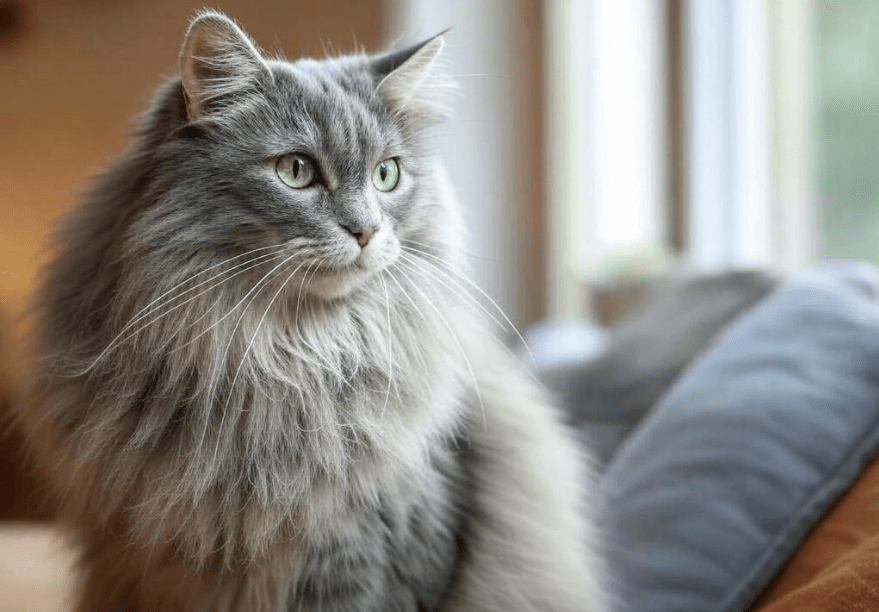
1. Research Potential Veterinarians
Start by identifying vets in your area who are equipped to handle Maine Coons:
Ask for Recommendations: Consult Maine Coon breeders, local cat clubs, or friends with cats for trusted referrals.
Check Online Reviews: Platforms like Google, Yelp, or pet-specific sites offer insights into other pet owners’ experiences.
Verify Credentials: Ensure the vet is licensed and affiliated with professional organizations like the American Veterinary Medical Association (AVMA).
Look for Feline Specialization: Vets with certifications from the American Association of Feline Practitioners (AAFP) or those labeled “cat-friendly” are ideal.
2. Evaluate Breed-Specific Experience
Maine Coons have distinct needs, so prioritize vets with:
Experience with Large Breeds: Ask if they’ve treated Maine Coons or other large cats and are familiar with their health risks.
Knowledge of HCM: Confirm they offer or recommend cardiac screenings, such as echocardiograms, to monitor for HCM.
Understanding of Joint Issues: Ensure they can diagnose and manage hip dysplasia or arthritis with treatments like joint supplements or laser therapy.
Genetic Testing Awareness: A good vet should know about SMA or PKD and offer or refer for genetic testing if needed.
Tip: Call the clinic and ask, “Do you have experience with Maine Coons, and how do you screen for breed-specific conditions like HCM?”
3. Assess the Clinic’s Services and Facilities
A vet’s ability to care for your Maine Coon depends on their resources:
Comprehensive Diagnostics: Look for clinics with in-house bloodwork, X-rays, ultrasound, and echocardiography for thorough health assessments.
Dental Care: Ensure they offer dental cleanings and exams, as Maine Coons are prone to oral health issues.
Emergency Services: Check if they provide after-hours care or have a referral system for emergencies.
Surgical Capabilities: Confirm they can perform spay/neuter, mass removals, or orthopedic surgeries if needed.
Preventive Care: Ask about wellness plans, vaccinations, and parasite control tailored to indoor or outdoor Maine Coons.
4. Visit the Clinic
A physical visit helps you evaluate the environment and staff:
Cleanliness and Organization: The clinic should be clean, odor-free, and well-maintained to reduce infection risks.
Cat-Friendly Features: Look for separate cat waiting areas, quiet exam rooms, or pheromone diffusers to minimize stress.
Staff Interaction: Observe if the staff is friendly, patient, and comfortable handling large cats like Maine Coons.
Equipment: Modern tools, like digital X-rays or anesthesia monitoring, indicate high-quality care.
Tip: Bring your Maine Coon for a non-medical visit (e.g., a weight check) to see how they react to the environment.
5. Evaluate the Vet’s Approach
The vet’s communication style and philosophy are critical:
Clear Communication: They should explain diagnoses, treatments, and costs in simple terms and answer your questions patiently.
Holistic Care: Look for a vet who considers nutrition, exercise, and behavior alongside medical treatment.
Preventive Focus: They should emphasize regular checkups, weight management, and breed-specific screenings.
Empathy and Gentleness: Maine Coons respond best to calm, confident handling. Watch how the vet interacts with your cat.
6. Consider Accessibility and Convenience
Practical factors ensure consistent care:
Location: Choose a clinic within a reasonable distance (e.g., 20–30 minutes) for routine and emergency visits.
Hours: Confirm they offer evening or weekend appointments if your schedule is busy.
Appointment Availability: Ask about wait times and how quickly you can get an appointment for non-emergencies.
Telemedicine: Some vets offer virtual consultations for minor issues, which can be convenient.
7. Discuss Costs and Payment Options
Veterinary care can be expensive, especially for a breed with potential health issues. To choose a vet for your Maine Coon:
Request Cost Estimates: Ask for typical costs for exams, vaccinations, dental cleanings, and HCM screenings.
Inquire About Payment Plans: Some clinics offer financing or wellness plans to spread out costs.
Pet Insurance Compatibility: If you have insurance, ensure the vet accepts it or provides detailed invoices for reimbursement.
Tip: Compare costs across clinics, but prioritize quality over the cheapest option, as Maine Coons need specialized care.
8. Check for Emergency and Specialist Referrals
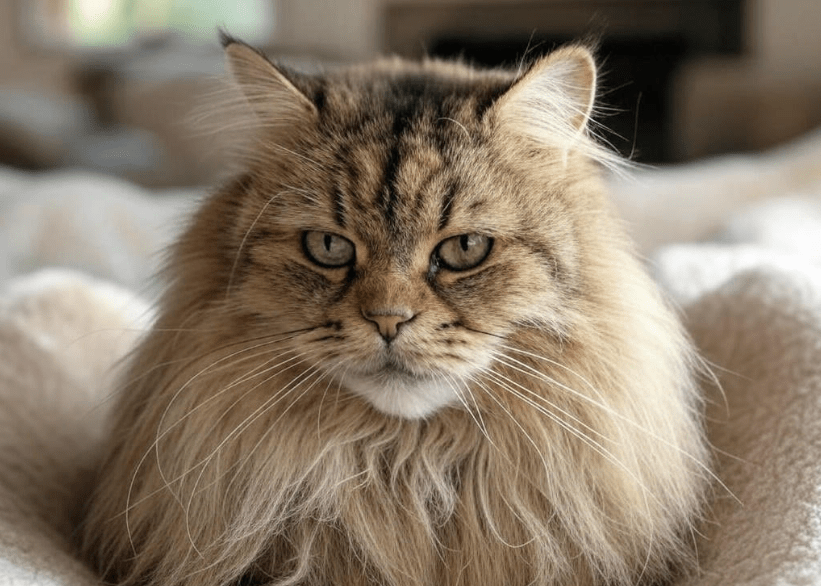
Maine Coons may need advanced care for conditions like HCM or hip dysplasia:
Emergency Protocols: Ask if the vet partners with a 24/7 emergency clinic and how they handle urgent cases.
Specialist Access: Confirm they can refer to cardiologists, orthopedic surgeons, or feline behaviorists if needed.
Continuity of Care: Ensure the vet communicates with specialists to coordinate your Maine Coon’s treatment.
9. Trust Your Instincts and Your Maine Coon’s Reaction
Your comfort and your cat’s response are key:
Your Confidence: Choose a vet you feel confident in, who listens to your concerns and respects your preferences.
Your Cat’s Comfort: If your Maine Coon seems relaxed during visits, it’s a good sign. Stressful experiences can deter future care.
Trial Period: Start with a routine visit to test the fit. You can switch vets if the experience isn’t ideal.
Questions to Ask When Choosing a Vet
To ensure you choose a vet for your Maine Coon who meets their needs, ask these questions during your initial contact or visit:
-
Do you have experience treating Maine Coons or other large cat breeds?
-
How do you screen for hypertrophic cardiomyopathy (HCM) and other breed-specific conditions?
-
What diagnostic tools (e.g., ultrasound, X-ray) are available in-house?
-
Do you offer cat-friendly features, like separate waiting areas or stress-reducing techniques?
-
How do you handle emergencies after hours?
-
Can you provide nutritional and exercise advice tailored to Maine Coons?
-
What are the costs for routine exams, vaccinations, and dental care?
-
Do you refer to specialists for conditions like heart or joint issues?
-
How do you approach pain management for procedures or chronic conditions?
-
Are you comfortable with pet insurance or payment plans?
Red Flags to Watch For
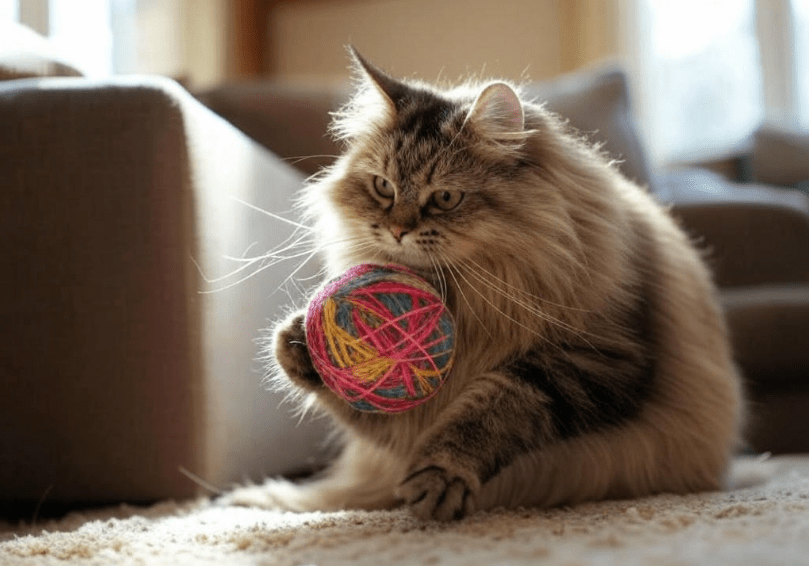
Avoid vets who:
1.Lack experience with Maine Coons or large breeds.
2.Dismiss breed-specific concerns like HCM or hip dysplasia.
3.Have a rushed or dismissive communication style.
4.Operate in a dirty, chaotic, or stressful clinic environment.
5.Pressure you into unnecessary treatments or upsell services.
6.Don’t offer clear cost estimates or payment options.
Building a Long-Term Relationship with Your Vet
Once you choose a vet for your Maine Coon, foster a strong partnership:
Schedule Regular Checkups: Annual exams for adults and biannual for seniors catch issues early.
Communicate Openly: Share changes in your Maine Coon’s behavior, appetite, or mobility promptly.
Follow Recommendations: Adhere to vaccination schedules, dental cleanings, and screening plans.
Keep Records: Maintain a file of your cat’s medical history, including test results and invoices, for continuity.
Show Appreciation: A good vet is a valuable ally. A thank-you note or positive review strengthens the relationship.
Special Considerations for Maine Coon Owners
To ensure your vet meets your Maine Coon’s needs throughout their life:
Kitten Care: Choose a vet who emphasizes early socialization, vaccinations, and growth monitoring to set a healthy foundation.
Indoor vs. Outdoor: Discuss parasite prevention and safety if your Maine Coon has outdoor access.
Spay/Neuter Timing: Maine Coons mature slowly (3–5 years), so consult your vet on the best age for spaying/neutering to avoid growth issues.
Senior Care: As Maine Coons age, prioritize vets who offer geriatric screenings for kidney, thyroid, and joint health.
Grooming Support: Ask for advice on brushing, nail trimming, and coat care to prevent matting and skin issues.
Fun Facts About Maine Coon Health
Slow Growers: Maine Coons take 3–5 years to reach full size, requiring careful monitoring during growth to prevent joint strain.
Water Lovers: Their love for water may make bath time easier, which is great for coat maintenance.
Vocal Check-Ins: Their chirps and trills can signal discomfort or happiness, helping observant owners communicate with vets.
Conclusion
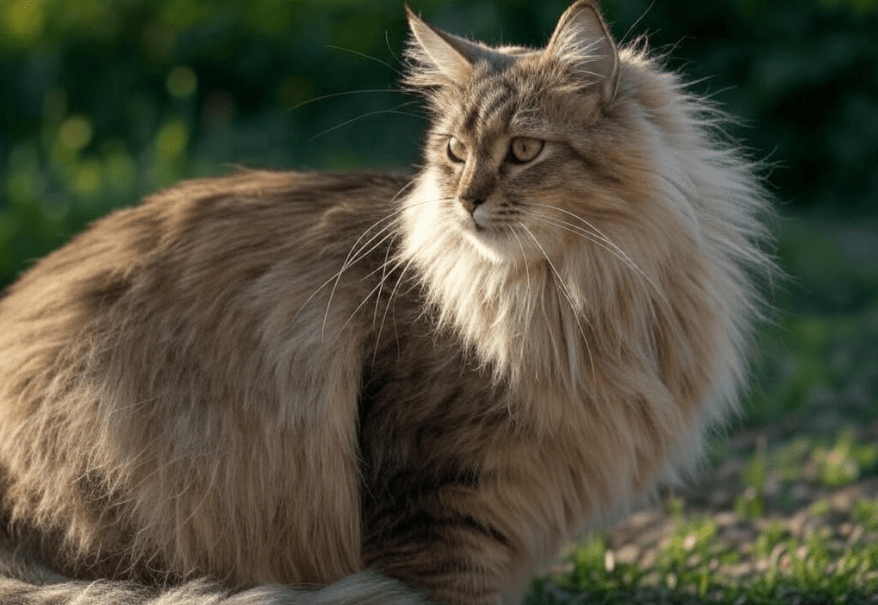
To choose a vet for your Maine Coon is a critical decision that impacts their health and happiness. By selecting a veterinarian with experience in large breeds, knowledge of Maine Coon-specific conditions like HCM, and a cat-friendly approach, you ensure your gentle giant receives the care they deserve. Research thoroughly, visit clinics, ask targeted questions, and trust your instincts to find a vet who aligns with your cat’s needs and your expectations. A strong vet partnership supports your Maine Coon through every life stage, from playful kitten to wise senior, keeping them healthy and vibrant.
Start your search today, and don’t hesitate to consult multiple vets to find the perfect fit. Your Maine Coon’s well-being depends on it, and with the right care, they’ll continue to fill your life with love and joy.

